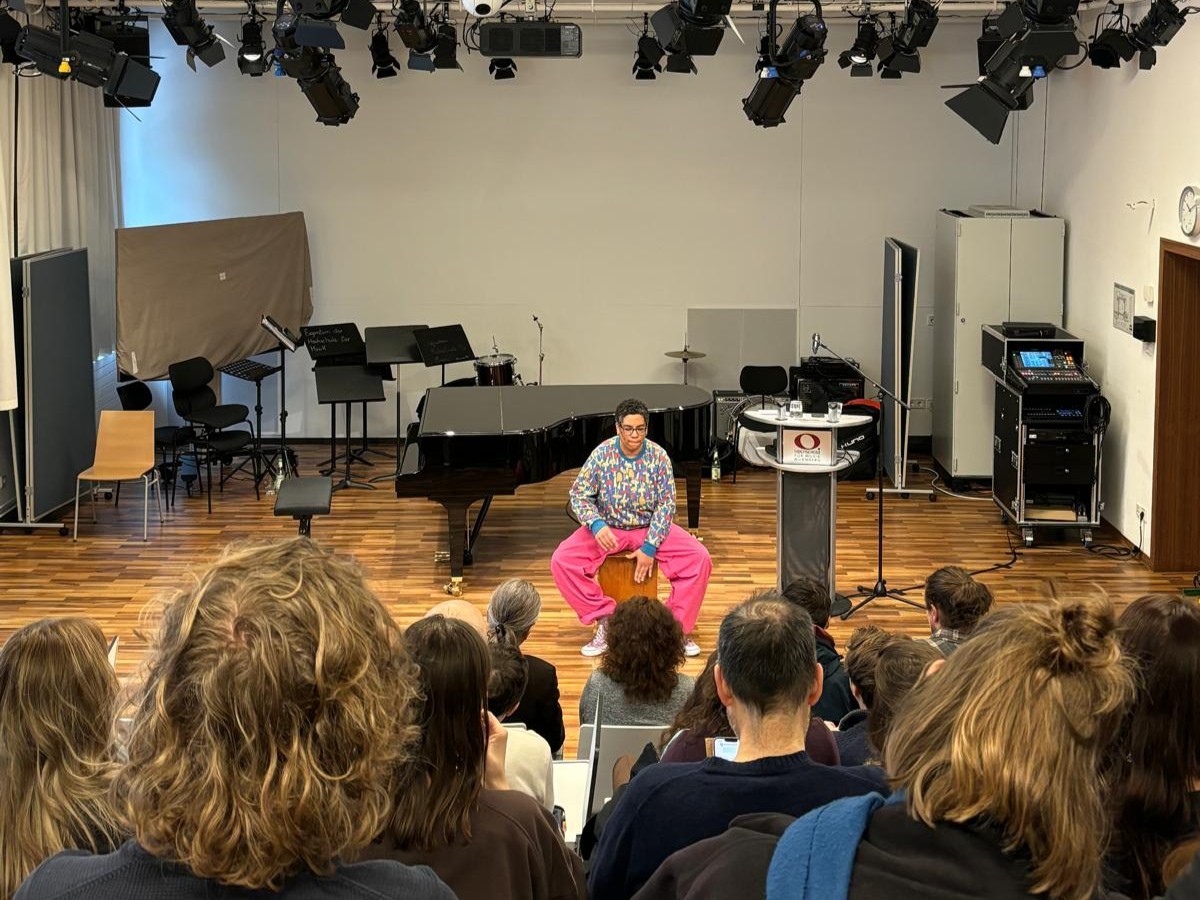The model for the new festival format, which will become an annual event, is the highly successful Brazilian Week initiated by Prof Fregnani in 2022. Hopes that the concept would be embraced by the university community have already been exceeded by the diversity of ideas submitted for the programme. Over the five days of the International Week, there were a total of 8 concerts and performances, 13 workshops - including two for children - 2 film screenings and a dance evening. The joint commitment of students, staff and even the administration was particularly impressive.
The workshops ranged from African piano music and Brazilian choros, the South American cajon and the traditional Korean instruments daegeum and geomungo, to circle dances, French Renaissance dances, Old English country dances, Franconian dances, folk music and AI, and a journey through the world of flutes for children. Italian baroque music, South American ballads and a musical introduction to the Viennese coffeehouse tradition made for three lively and colourful afternoon performances in the cafeteria.
And the large concert formats in the Orchestra and Chamber Music Halls with South American music, the music of Dvorak & Co, the music of the Ukraine and the influence of Romanian folk music on art music were touching. The final concert, performed by the Children's Opera Choir of the Nuremberg State Theatre, the University Choir, the Chamber Choir and the Hermeto Pascoal Ensemble, brought together over 100 participants.
The response to events is always unpredictable and at the same time crucial. In order to enable as many people as possible to take part, teaching staff were able to take their courses to the International Week events. Many lecturers took advantage of this opportunity to bring their students. At the same time, it was important to the planning team that the theme of international cultures should be experienced through the senses: on the one hand through places for daily encounters such as the cafeteria or the foyer, and on the other through culinary delights such as the international brunch or by trying one's hand at DIY projects. Teachers, students and members of the administration team prepared Franconian "Feuerspatzen" and English scones in the administration kitchen, knitted, crocheted, made crepe flowers and knotted macramé in the canteen, and were introduced to the art of juggling in the foyer. At the international brunch, musically accompanied by the jazz department and the percussion class, the tables were barely big enough for the abundance of international specialities.
The young ensemble Silbersalz Geigenmusi, who celebrated alpine folk music in the foyer before the final concert and during the interval, will also be remembered for being so energetic that one or two of the concert-goers spontaneously joined in the dancing.
Rarely have so many smiling faces been seen around the University as during these five days of International Week. The start of the new festival format could hardly have been more successful!
We look forward to another International Week in 2026!

Share